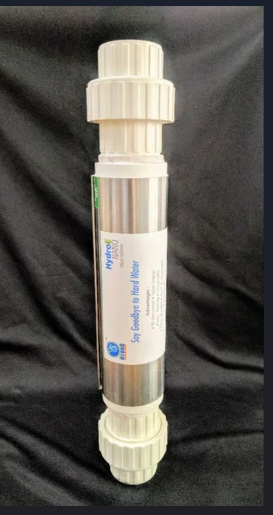Softener System Suppliers Near Me
A softener system supply is critical for managing water quality in various residential, commercial, and industrial settings. These systems are designed to remove hardness-causing minerals, such as calcium and magnesium, from water, improving its suitability for use and preventing scale buildup in plumbing and appliances. This comprehensive guide will explore the components, benefits, applications, and considerations involved in the supply of water softener systems.
A water softener system is a device that treats hard water by removing or altering the minerals that cause water hardness. Hard water can lead to several issues, such as scaling in pipes, reduced efficiency of appliances, and skin irritation. Water softeners use various methods to soften water, with the most common being ion exchange, where calcium and magnesium ions are exchanged for sodium or potassium ions.
Components of a Softener System
-
Resin Tank: The resin tank contains the resin beads where the ion exchange process occurs. These beads attract calcium and magnesium ions and exchange them with sodium or potassium ions.
-
Brine Tank: This tank holds the salt solution used to regenerate the resin beads. During regeneration, the salt solution flushes the accumulated hardness minerals from the resin, allowing the beads to continue softening the water.
-
Control Valve: The control valve regulates the flow of water into and out of the resin tank and manages the regeneration process. It can be set to regenerate the system based on a timer or water usage.
-
Salt: High-purity salt is essential for the regeneration process. It is usually available in pellet, crystal, or block form.
-
Bypass Valve: This allows users to bypass the softener system for maintenance or if softened water is not required for certain tasks.
Benefits of a Water Softener System
-
Prolonged Appliance Lifespan: Soft water prevents the buildup of scale in appliances like water heaters, dishwashers, and washing machines, extending their lifespan and maintaining efficiency.
-
Improved Water Quality: Softened water feels smoother and more pleasant on the skin and hair, reducing the need for soap and shampoo. It also prevents soap scum and reduces laundry detergent usage.
-
Energy Efficiency: With softened water, appliances work more efficiently, leading to lower energy consumption and reduced utility bills.
-
Pipe Longevity: Scale buildup in pipes can lead to blockages and reduced water flow. Water softeners help maintain the integrity of plumbing systems by preventing these issues.
-
Cost Savings: By reducing energy usage, extending the life of appliances, and decreasing the amount of soap and detergent needed, water softeners can lead to significant cost savings over time.
Applications of Softener Systems
-
Residential Use: Homeowners often install water softeners to protect appliances, improve water quality, and enhance the overall comfort of their living environment. Common applications include kitchen water, laundry, and bathroom systems.
-
Commercial Use: In commercial settings like hotels, restaurants, and laundromats, water softeners are essential for maintaining the quality and longevity of equipment, ensuring customer satisfaction, and reducing operational costs.
-
Industrial Use: Industries that rely heavily on water, such as manufacturing, food processing, and pharmaceuticals, use water softeners to prevent scale buildup in boilers, cooling towers, and other equipment, ensuring efficient operation and compliance with industry standards.
Considerations for Softener System Supply
-
Water Hardness Levels: The hardness level of the water in a specific location is a critical factor in selecting the right softener system. Water hardness is typically measured in grains per gallon (GPG), and understanding this measurement helps in choosing the correct system capacity.
-
System Capacity: The capacity of a water softener system is determined by the amount of hardness it can remove before regeneration is required. It's essential to choose a system that matches the water consumption needs of the household or facility.
-
Regeneration Method: There are different methods of regeneration, including time-initiated, demand-initiated, and manual regeneration. The choice depends on the water usage patterns and the preference for automation.
-
Salt Type: The type of salt used in the brine tank (sodium or potassium) can impact the water softening process and the environment. Sodium is more common and cost-effective, while potassium is a better option for those concerned about sodium intake or environmental impact.
-
Maintenance Requirements: Regular maintenance, such as checking salt levels and cleaning the brine tank, is necessary to keep the system functioning optimally. Some advanced systems come with features that make maintenance easier, such as low salt alerts.
-
Installation and Space: The installation of a water softener system requires sufficient space near the main water supply line. Considerations include proximity to a drain for the regeneration process and ensuring the area is accessible for maintenance.
-
Cost: The initial cost of the system, along with ongoing costs for salt, maintenance, and potential repairs, should be considered when selecting a water softener. While the upfront investment can be significant, the long-term savings often justify the expense.
-
Environmental Impact: Some water softeners discharge salt into the environment, which can have negative effects on local water supplies and ecosystems. Eco-friendly alternatives and salt-free systems are available for those concerned about environmental impact.
Conclusion
Water softener systems are invaluable in managing water quality, protecting appliances, and ensuring the efficient operation of various systems in residential, commercial, and industrial settings. When considering the supply of a water softener system, it's essential to evaluate factors such as water hardness, system capacity, regeneration method, and maintenance requirements. By selecting the right system and maintaining it properly, users can enjoy the benefits of softened water, including prolonged appliance life, improved water quality, and cost savings.
